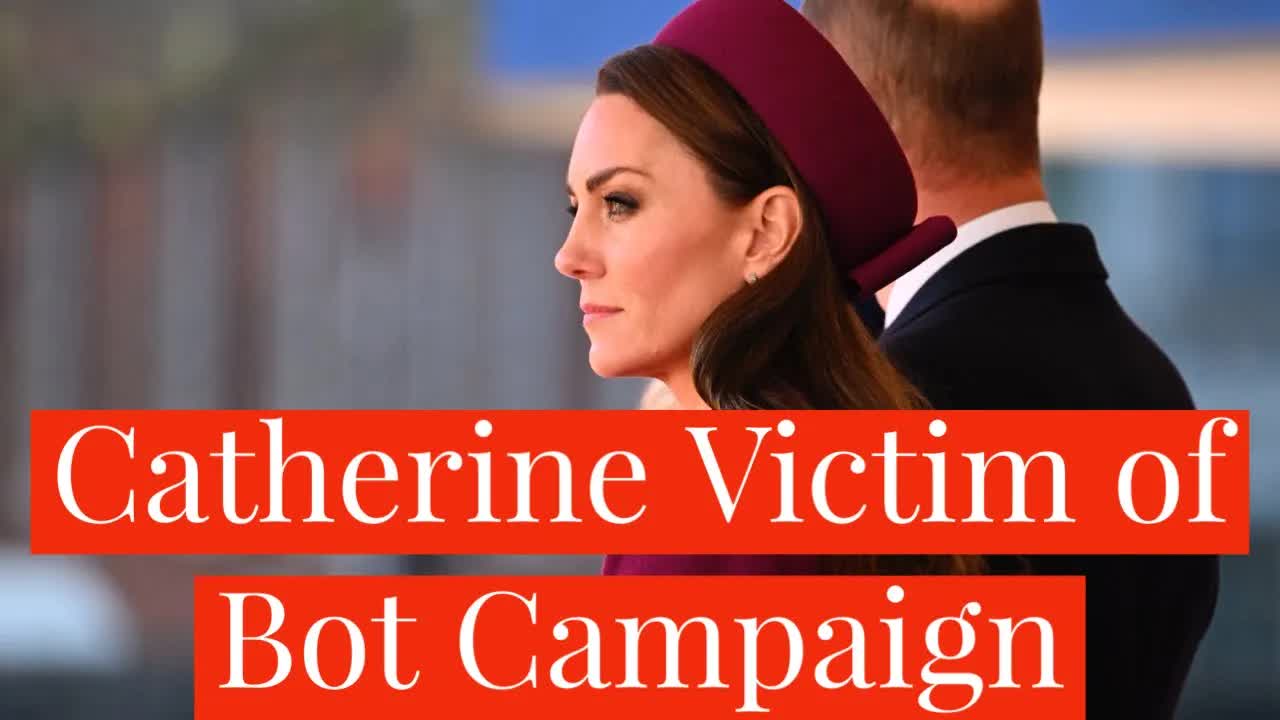Must Read
Foreign Governments Target Princess Catherine in Malicious Disinformation Campaign
In a shocking revelation, the Princess of Wales, Catherine, has reportedly become the target of a disinformation campaign allegedly funded by foreign governments, including Russia, China, and Iran.
A recent report from Whitehall has shed light on how these hostile entities may be behind the malicious rumors circulating online regarding the Princess's health and absence from public life.
This unprecedented situation raises serious questions about the intersection of royal influence and international politics.
The report underscores the alarming notion that foreign powers would resort to attacking a member of the British royal family as a means to destabilize the UK government.
The timing of this campaign is particularly troubling, coinciding with Catherine's recovery from surgery.
It's a stark reminder of the potential vulnerabilities faced by public figures, especially those as prominent as the Princess of Wales.
Catherine's significance within the monarchy cannot be overstated.
Her role extends beyond traditional royal duties; she embodies a crucial part of the UK's national identity and stability.
The fact that foreign states would seek to undermine her credibility is a testament to her influence and the perceived threat she poses to their interests.
This incident highlights the delicate balance of power between the monarchy and external forces.
Interestingly, this situation also opens the door to discussions about other royals, such as Meghan Markle, who has faced her share of online vitriol.
Some supporters have claimed that Meghan has been victimized by similar bot campaigns.
What does this new report mean for the broader conversation surrounding social media, royal scrutiny, and the impact of foreign interference?
It's a complex web that intertwines celebrity, governance, and international relations.
The implications of this campaign go far beyond royal gossip.
They delve into the very fabric of governance and public trust.
The monarchy, while largely ceremonial, plays a vital role in shaping the UK's image abroad.
If the public begins to question the integrity of its royal family, the repercussions could ripple through the entire political landscape.
Whitehall sources have expressed concern that these hostile state actors are deliberately spreading conspiracy theories to create chaos.
This tactic is not new; it mirrors strategies used to undermine democratic institutions worldwide.
As Prime Minister Rishi Sunak condemned the online harassment directed at Catherine, the urgency of addressing this issue became clear.
The government must safeguard the integrity of its institutions against these insidious attacks.
Catherine's recent health struggles have only intensified public interest and scrutiny.
After announcing her cancer diagnosis, she faced a barrage of criticism for not disclosing details sooner.
While some may argue that public figures owe transparency to their audience, it's essential to remember that individuals facing medical crises often need time to process their situations privately.
Social media has amplified the spread of misinformation, making it easier for harmful narratives to gain traction.
The rapid dissemination of unfounded claims about Catherine's health illustrates the darker side of digital communication.
Experts have called for social media platforms to take responsibility for curbing the spread of false information, yet the challenge remains daunting.
Moreover, the media's role in perpetuating these narratives cannot be ignored.
While social media serves as a breeding ground for conspiracy theories, mainstream media outlets have also contributed to the frenzy by amplifying sensational stories without sufficient verification.
This dynamic creates a dangerous feedback loop that can distort public perception and erode trust in established institutions.
As the monarchy navigates this turbulent landscape, it must adapt its communication strategies to counteract disinformation effectively.
The failure to do so risks not only the reputation of individual royals but the institution as a whole.
In an era where information spreads like wildfire, proactive measures are essential to protect both the monarchy and the public's confidence in it.
This situation serves as a wake-up call, reminding us of the intricate relationship between celebrity, governance, and public perception.
The monarchy is not just a relic of the past; it remains a vital part of the UK's identity and international standing.
The stakes are high, and the consequences of mismanagement could resonate far beyond the royal family.
As the investigation into these foreign-funded campaigns continues, the implications for Catherine and the monarchy will be closely watched.
The resilience of the institution hinges on its ability to adapt to modern challenges while maintaining its historical significance.
The future of the monarchy may very well depend on how it responds to these unprecedented threats.




















